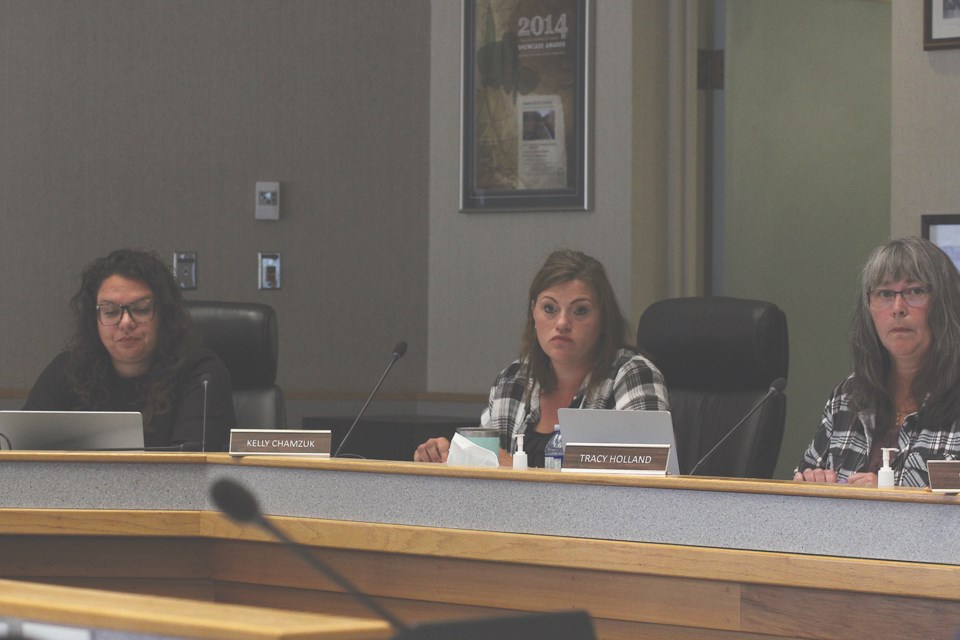ATHABASCA – Less than a year after the region initially applied for an immigration program aimed to connect applicants with interested municipalities, Athabasca County will be withdrawing from it due to a number of issues with the process.
During the Aug. 10 committee of the whole meeting, councillors voted unanimously — Coun. Camille Wallach was absent — in favour recommending the county be removed from the list of approved communities in the Rural Renewal Stream, and also send a letter to the agency responsible for the program documenting their issues with the process.
County interim CAO Pat Vincent said during the Alberta Hub and RMA (Rural Municipalities of Alberta) meeting he attended July 13, “various committees spoke about their participation in the program, which included challenges with the approval process, an unforeseen drain on time and resources, and mass amounts of communication from interested parties.”
“We applied and we were successful, but we now need to consider that we aren’t capable of handling this,” said Vincent.
Councillors agreed, saying that while the experience had been eye-opening, the reality wasn’t as positive as they had hoped. The only issue with the county’s withdrawal was brought up by reeve Brian Hall as they needed to notify their municipal partners before it was made official.
“We need to tell them first, out of respect for the process and the partnership,” said Hall. “Both the Town of Athabasca and the Village of Boyle have meetings between now and Aug. 31 (the next county council meeting), so we can tell them that it’s our intent to withdraw and they can’t discuss it.”
According to the Government of Alberta’s website, the program “supports the attraction and retention of newcomers to rural Alberta through a community-driven approach.” Since the region was accepted, local administrative staff have struggled with the extra work, including the Town of Athabasca’s CAO Rachel Ramey, who brought the topic up during a March 10 town council meeting.
“We don’t have an economic development officer (EDO) right now, which is a huge problem. No one knows anything about this program, or where we go from here,” said Ramey at the time. “We’re a designated community, okay great, now what?”
Vincent said that he had talked with his municipal counterparts before bringing the issue forward to council.
“Athabasca shares the same position administratively, although Boyle was a bit less so,” said Vincent. “The town just hasn’t responded to applicants because they don’t have the resources or the availability to make it work.”
The region had joined the stream in the hopes of finding qualified immigrants for a variety of open positions. In their application, Athabasca County said that “the current unemployment situation is low … labour shortages had plagued the food, retail, farming and hospitality industries even prior to the COVID-19 pandemic, and further restrictions have further pushed workers out.”
Good intentions
The county applied to the program alongside the town and village Oct. 10, 2022, and it didn’t take long after their acceptance for the issues to begin. When the region had initially applied there was an EDO in place but following the dissolution of the tourism and economic development (TED) committee there hadn’t been any plans to reinstate the position. Without the dedicated staff, the numerous phone calls each municipality was receiving a day became a burden.
“We got five calls about this today alone, and three of them were from Africa,” said Vincent. “Many of the municipalities at that meeting said that it was just another example of government downloading, and felt it was costing them as much as $150,000 a year in resources and staff time.”
Coun. Tracy Holland agreed, but wanted to add in a letter so that the government would receive some feedback on the issue.
“I really like the motion, it was certainly a huge eye opener,” said Holland.” I just want to add that we need to send a letter to the province to let them know that this is a problem that needs revisiting.”



